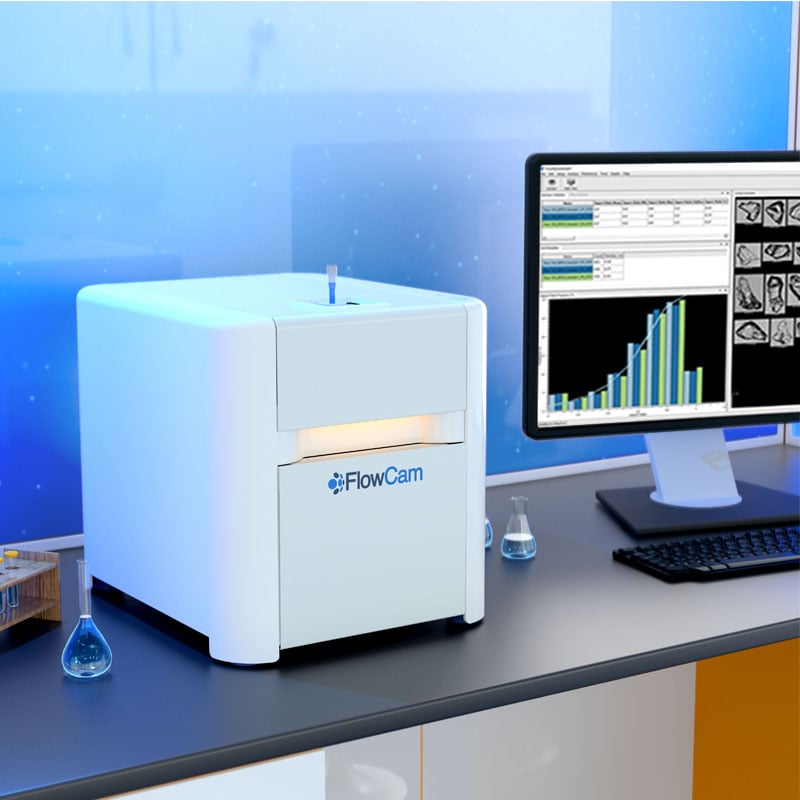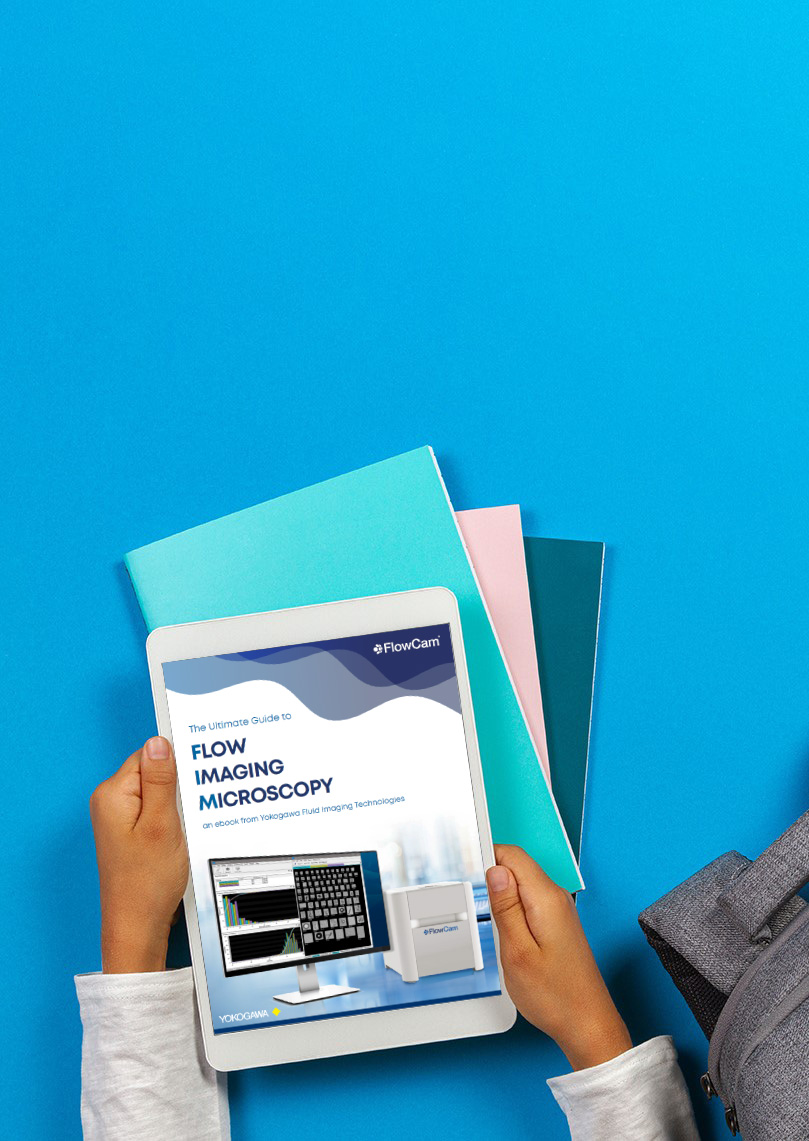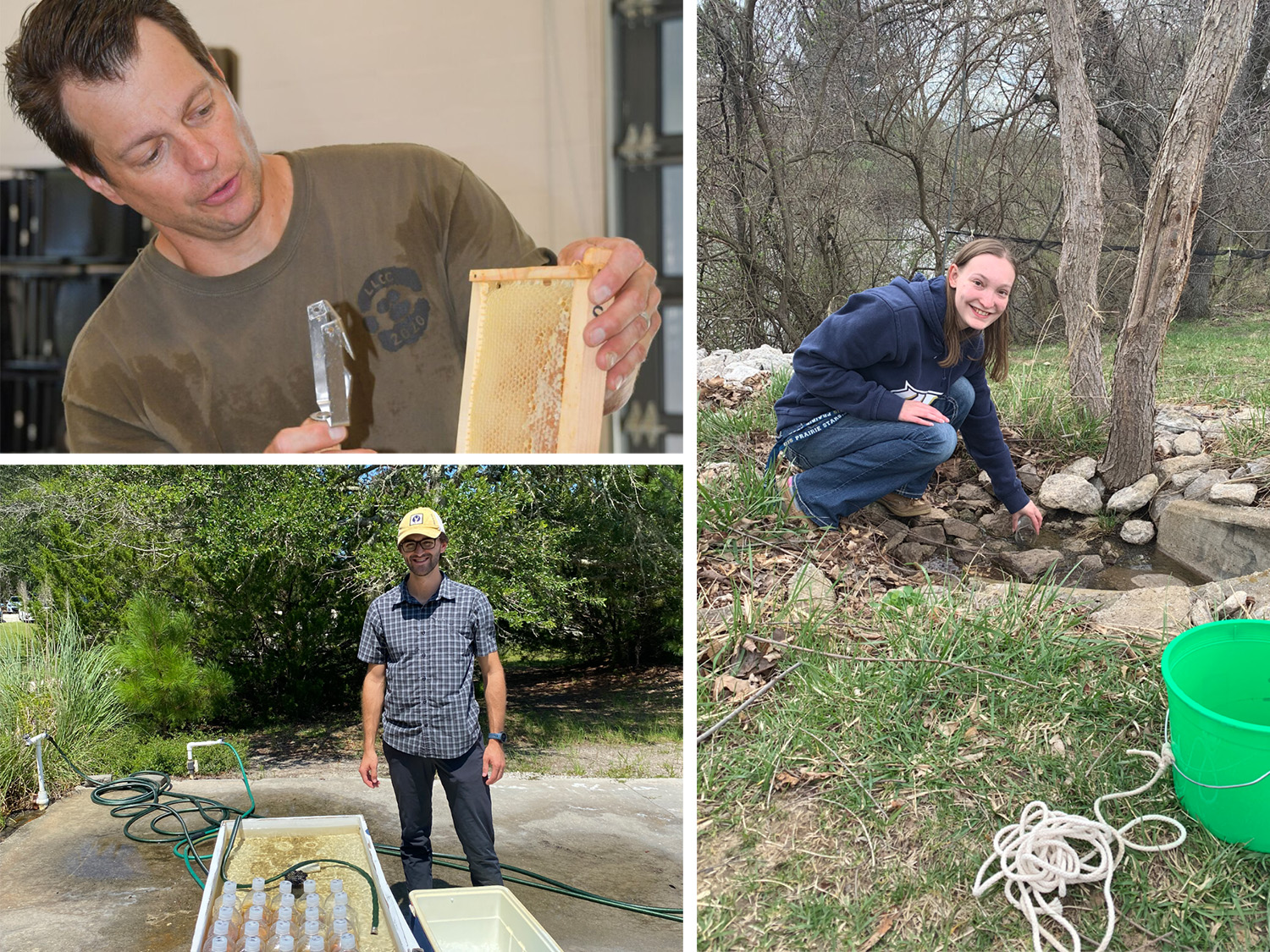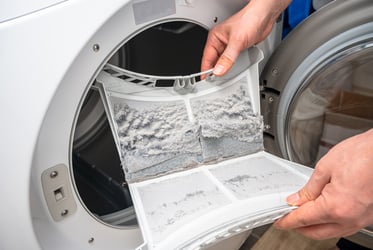The FlowCam Aquatic Research Grant was first offered in 2011 and since then has provided students and educators with the opportunity to use flow imaging microscopy data as part of their research and coursework. Recipients are awarded a FlowCam instrument to use in their lab for up to four months, including training, technical support, and funding to present their research at a major scientific conference.
Learn more about the FlowCam Grant Program
2023 Grant Recipients
Graduate Winner: Alex Barth, University of South Carolina, Biological Sciences
 Alex's research focuses on the effect that extreme rain storms can have on estuarine plankton communities.
Alex's research focuses on the effect that extreme rain storms can have on estuarine plankton communities.
Alex says, "Intense rain events can stress phytoplankton communities through multiple influences. Namely, salinity changes, nutrient inputs, and intensified mixing." Given complex responses to storm events, Alex is specifically interested in exploring two questions:
- How do intense inputs (freshwater & nutrients) from rain events influence phytoplankton community structure?
- If there are community structure shifts following intense rain events, are these shifts primarily driven by inputs or through physical mixing events?
Alex (right) and his advisor, Dr. Joshua Stone (left), will use FlowCam to facilitate data collection and analysis regarding phyto- and microzooplankton abundance and biovolume in North Inlet, a vulnerable estuary in Georgetown, South Carolina. Alex will use Ecotaxa software, along with his taxonomic expertise obtained working for the California Harmful Algal Bloom Monitoring and Alert Program (HABMAP), to identify the organisms present in his samples (collected this past summer).
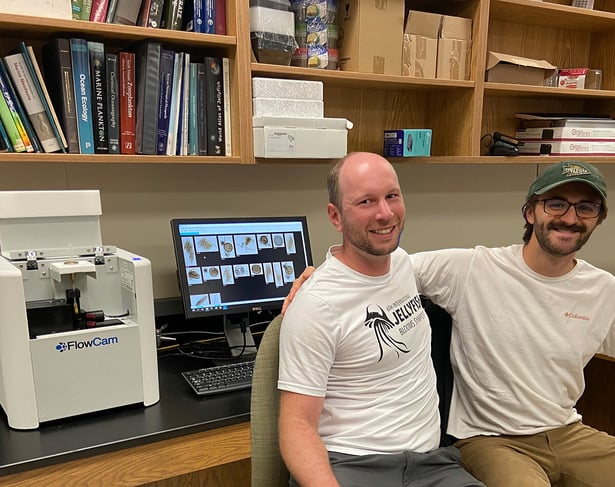
Alex has recently received his FlowCam training, and is currently on the way toward completing his research goals!
Undergraduate Winners: Professor Dave Cox & Instructor Jennifer Davis
Lincoln Land Community College, Department of Natural & Agricultural Sciences
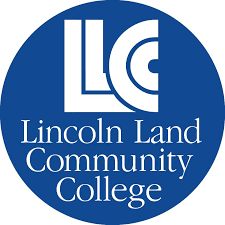 Cox and Davis plan to incorporate FlowCam into two of their undergraduate courses, Biology 112: Principles of Biology and Biology 104: Life in the Environment.
Cox and Davis plan to incorporate FlowCam into two of their undergraduate courses, Biology 112: Principles of Biology and Biology 104: Life in the Environment.
In Biology 112, students will use FlowCam in different sections of the course to accomplish three distinct goals:
- To gain a better understanding of how protists fit into the classification system of biological organisms
- To observe the biological diversity present in aquatic and terrestrial samples taken on campus
- To examine how the physical properties of honey may influence any observed antibacterial properties (as part of a honey analysis research project).
"The Biology 104 course [will use] FlowCam for the Aquatic Ecology Lab, the Aquatic Ecology Comparison Lab, the Agriculture Lab, the Bee Lab, and the Food Lab, all existing labs for the course. The two aquatic labs focus on Lake Macoupin behind campus, while the other labs use resources available on campus, including the LLCC agriculture fields and the LLCC apiary. Students will take water samples for each of these labs, and they will look at different chemical parameters. FlowCam would allow us to take water samples back up to the lab to determine which species of phytoplankton are present in our samples."
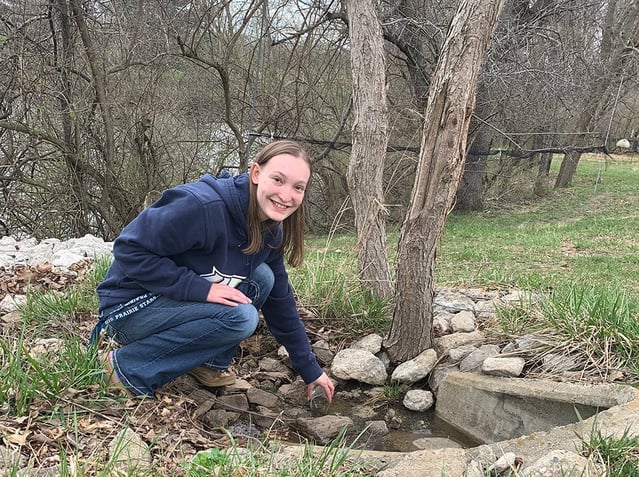
Pictured above: Jennifer Davis collecting a water sample for analysis
Cox and Davis eagerly await their training and FlowCam delivery in November to incorporate flow imaging microscopy into their second-semester classes.



